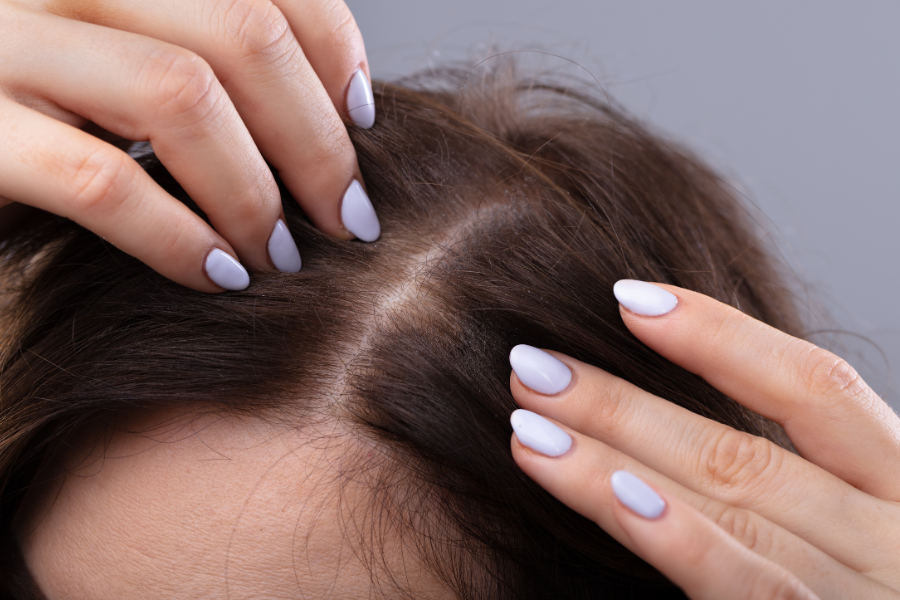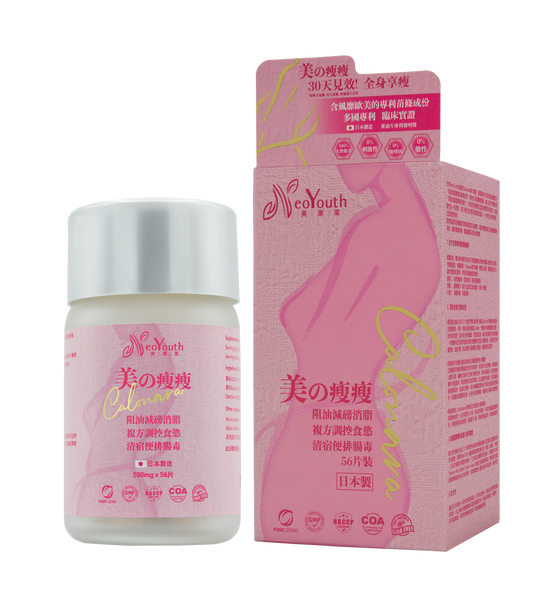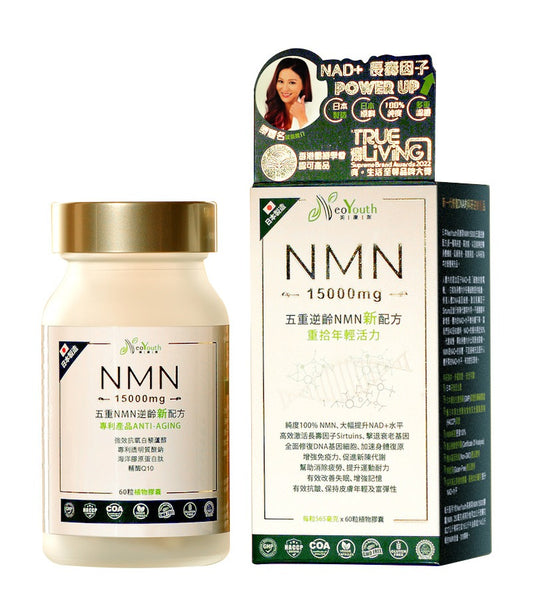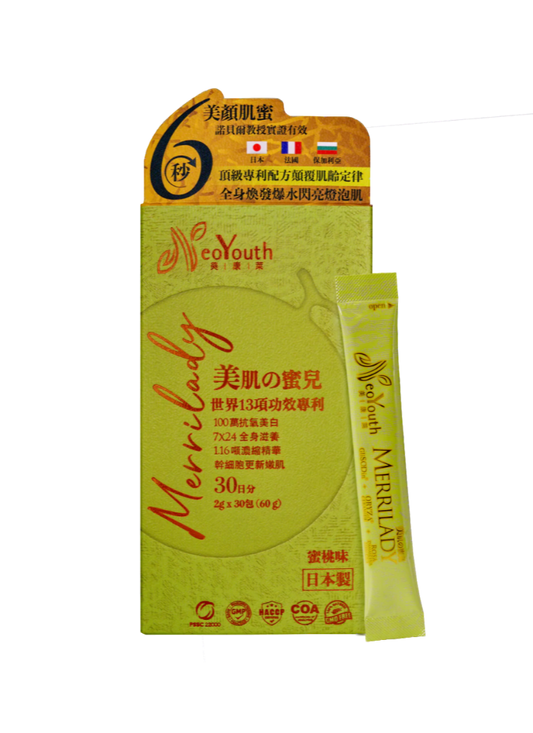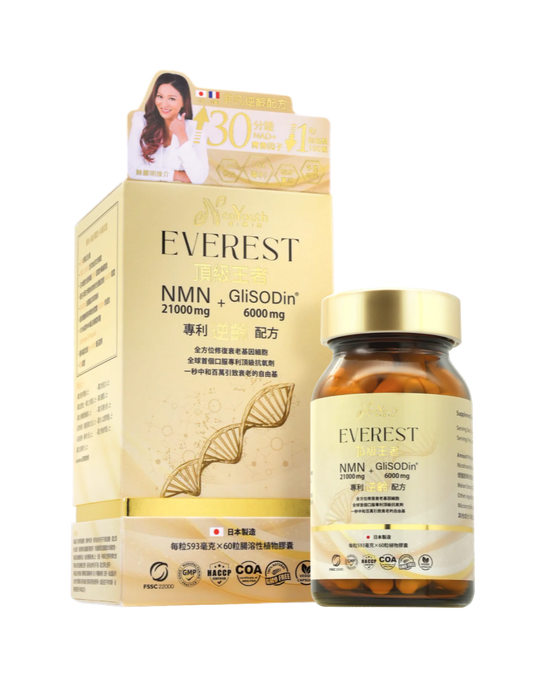As women age, many notice their hair thinning, affecting not only their appearance but also their self-confidence. The causes of thinning hair in women may be related to hormonal changes, nutritional deficiencies, excessive stress, and lifestyle habits. NeoYouth will delve into the possible causes of thinning hair and provide practical methods to improve it, addressing both diet and lifestyle habits to help you understand what to eat and regain healthy, full hair.
What are the differences between female hair loss and male pattern baldness?
When it comes to baldness, people usually think of men's problems first, but women also face this problem. Generally speaking, the human body loses about 50 to 100 hairs every day, while new hair grows. [1] However, if the rate of hair loss exceeds the rate of new hair growth, it will eventually lead to thinning hair . Women's hair loss is mostly concentrated on the top of the head and the parting line, with an overall even reduction in hair volume and less local baldness, unlike the typical M-shaped baldness of men.
What are the signs of thinning hair ?
If you experience hair loss, it indicates a potential health problem or a warning sign that your hair may thin further. It's important to pay attention to the following common signs of hair loss and address them early:
-
The amount of hair loss gradually increases, and there is a noticeable increase in hair loss when washing hair.
-
There is obvious localized thinning or baldness on the top of the head or along the hairline.
-
The parting line widens, and the scalp becomes clearly visible.
-
Uneven hair length, making hair fragile and prone to breakage.
Reasons for thinning hair in women
A professor of dermatology and director of a hair loss clinic at Harvard Medical School pointed out that thinning hair in women may be related to inflammation in the body, and this type of hair loss can usually be stabilized or even reversed with treatment. [2] Other medical studies have shown that there are many possible causes of thinning hair , including:
Genetic factors
If there is a family history of baldness, the risk of hair loss is relatively high. Hereditary hair loss patterns are relatively fixed and tend to worsen with age; therefore, lifestyle adjustments or treatment should be sought as early as possible to slow the hair loss process.
Hormonal imbalance
Several hormonal changes can cause thinning hair in women , including during menopause or pregnancy, when a decrease in estrogen and progesterone leads to a relatively higher level of androgens. As we age, hair growth slows, and some hair follicles may even stop growing, resulting in increasingly thinning hair. Other endocrine disorders, such as polycystic ovary syndrome (PCOS), can also disrupt hormonal balance and cause hair loss.
Nutritional deficiencies
The body needs sufficient nutrition to grow new hair and maintain healthy hair. A lack of protein, iron, zinc, vitamin B complex, or anorexia or bulimia can affect the health of the scalp and hair follicles, making it difficult for hair to grow normally and making the hair follicles fragile. [1]
Hairstyle and external injury
Tying your hair up tightly for extended periods, or frequently using heat tools such as hairdryers and straighteners, can cause traction alopecia due to the continuous pulling on the hair roots. Areas that are frequently pulled may develop patchy hair loss, or the hair near the forehead may shorten. Other styling habits that cause hair breakage or thinning, including frequent perming and dyeing, excessive washing and combing, and even forcefully pulling out hair clips, can all contribute to thinning hair in women .
Stress and immune diseases
High levels of stress, irregular lifestyle, or conditions such as diabetes, anemia, or immune system disorders (e.g., thyroid problems, lupus) can accelerate hair loss. Stress-induced hair loss is usually temporary, and hair typically recovers within six months once the stress is relieved. Certain cancer treatments (e.g., chemotherapy) or some medications, such as birth control pills, anticoagulants, and steroids, can also cause hair loss. [3]
What should you eat to help with thinning hair ? Hair growth nutrients and food recommendations.
Hair is mainly composed of keratin, water, fat, and minerals. Consuming key and sufficient nutrients helps maintain healthy hair and prevent hair loss. Besides maintaining adequate hydration, what foods are good for thinning hair ? Below are some nutrients that contribute to healthy hair and their food sources.
protein
The main component of hair is keratin, and a lack of protein can make hair brittle and prone to falling out. Good quality protein can be obtained from chicken, beef, fish, eggs, beans, dairy products, and nuts.
Minerals (iron, zinc, selenium, calcium, potassium)
Consuming essential minerals can help promote hair growth and repair. If you're unsure which minerals to eat to prevent thinning hair , you can supplement with the following:
-
Iron : Helps transport oxygen to hair follicles; iron deficiency can lead to hair loss. Iron can be obtained from red meat, pork liver, spinach, and black fungus.
-
Calcium : Maintains the nutrient supply to hair follicles; deficiency can affect hair growth. Milk, cheese, red meat, and leafy green vegetables are all rich in calcium.
-
Zinc : Promotes hair follicle cell division and repair, maintaining healthy hair follicles. It can be obtained from oysters, shellfish, beef, and pumpkin seeds.
-
Selenium : Has antioxidant properties, prevents hair follicle cell aging and inflammation, and promotes healthy hair growth. Brazil nuts are one of the foods richest in selenium; it can also be obtained from seafood and meat.
-
Potassium : Helps regulate blood and fluid balance, maintaining a healthy scalp environment. Foods rich in potassium include bananas, sweet potatoes, and spinach.
Folic acid and vitamin B12
Folic acid (B9) and vitamin B12 help promote the normal division and regeneration of hair follicle cells, effectively preventing hair loss caused by anemia. What foods can you eat to supplement these two vitamins and prevent thinning hair ? It is recommended to eat more asparagus, cauliflower, dairy products, fish, and eggs.
Vitamin B complex
Besides folic acid and vitamin B12, other B vitamins also play an important role in hair health:
-
Vitamin B3 : Promotes blood circulation in the scalp and nourishes hair follicles. Chicken, tuna, and mushrooms are all rich in vitamin B3.
-
Vitamin B7 , also known as biotin, helps produce keratin and is a key nutrient for preventing hair loss and strengthening hair. Eggs, almonds, and avocados are the main sources.
Vitamin D
Vitamin D can stimulate hair follicle activity, promote new hair growth, and also helps with muscle, nerve, and immune system function. Vitamin D is mainly found in oily fish such as salmon and mackerel, egg yolks, and cod liver oil.
Other vitamins
Besides vitamins B and D, what other vitamins can I take to prevent thinning hair ?
-
Vitamin A : Promotes scalp cell renewal and maintains scalp health.
-
Vitamin C : Helps with collagen production, maintains the stability of hair follicle structure, and improves iron absorption efficiency.
-
Vitamin E : It has antioxidant properties, helps fight free radical damage, and supports scalp blood circulation.
-
Vitamin K : Promotes blood clotting, improves scalp microcirculation, and helps hair grow healthily.
High-quality fats
What fats can help prevent thinning hair ? Omega-3 and Omega-6 fatty acids are important nutrients for maintaining scalp and hair moisture, and can effectively prevent dry scalp, hair loss and hair breakage. Foods rich in these fatty acids include fatty fish, flaxseeds and walnuts. [4]
What dietary and lifestyle habits might worsen thinning hair ?
After understanding the causes and improvement methods for thinning hair , it's also important to pay attention to the impact of daily diet and lifestyle habits on hair health. Bad habits can worsen hair loss and thinning ; therefore, it's recommended to pay special attention to the following points:
-
Dieting or an unbalanced diet can easily lead to nutritional deficiencies, which in turn can cause hair loss.
-
An excessively oil-free diet leads to insufficient intake of fatty acids, which affects the health of hair follicles.
-
Frequent consumption of fried foods and highly processed foods increases inflammation in the body, damaging the scalp and hair structure.
-
Long-term sleep deprivation or poor sleep quality can affect hormone secretion and scalp repair.
-
High levels of stress and emotional fluctuations can lead to endocrine disorders and accelerate hair loss.
-
Frequent dyeing or perming of hair, as well as prolonged use of high-temperature styling tools, can repeatedly damage hair follicles, leading to thinning hair .
-
Tying your hair up tightly or using a pulling headband can worsen hair follicle traction and increase the risk of hair loss.
Good lifestyle habits and skincare routines can not only maintain physical and mental health, but also help reduce or prevent hair thinning .
Methods to improve thinning hair
To address the problem of thinning hair, you can actually improve it from three aspects, allowing the hair roots to regain health and the hair volume to gradually increase.
Daily maintenance
In daily life, avoid excessive pulling and high-temperature damage to your hair, and reduce the frequency of hair dyeing, perming, and hot air styling. Choose gentle shampoos and regularly massage your scalp to promote blood circulation and enhance nutrient supply to hair follicles, which helps improve thinning hair . You can also use essential oils that promote hair growth, such as rosemary oil and peppermint oil. In addition, sufficient sleep and effective stress reduction are equally important for healthy hair.
Nutritional supplements
A balanced diet is the cornerstone of preventing and improving thinning hair . It's important to understand what foods can improve thinning hair , such as increasing your intake of high-protein foods, various vitamins, and minerals. If necessary, you can supplement with nutritional supplements under the guidance of a professional doctor or nutritionist to ensure your hair receives the necessary nutrients.
Professional treatment
If the thinning hair is severe, it is recommended to consult a dermatologist or hair specialist, who may recommend topical minoxidil or other hair regrowth therapies. Depending on the cause, oral medications such as estrogen supplementation or anti-androgen therapy, or laser treatment may also be used, and the treatment effect should be monitored regularly and the plan adjusted as needed. [4]
NeoYouth Mikanglai from Japan is the top choice for improving thinning hair .
If you're struggling with thinning hair and looking to support your scalp and hair follicles through nutritional supplements, NeoYouth NMN15000+12000Ex Five-Fold Anti-Aging Formula from Japan is a high-quality option worth considering. This product combines multiple patented ingredients to not only address women's thinning hair problem but also comprehensively care for your body's functions, helping you fundamentally improve thinning hair and restore confident, beautiful hair.
-
Five-fold anti-aging patented formula : The core ingredient, 100% high-purity NMN (β-nicotinamide mononucleotide), is combined with antioxidant resveratrol, patented sodium hyaluronate, marine collagen peptides, and Q10 coenzyme to comprehensively combat the main causes of thinning hair, such as oxidative stress, cell aging, and nutrient loss .
-
Enhance NAD+ and activate longevity genes : Improve cellular energy and repair capabilities, which helps hair follicle regeneration and new hair growth, and helps improve problems such as thinning hair and reduced hair volume in women.
-
Promotes collagen production : Collagen peptides and hyaluronic acid work synergistically to maintain scalp elasticity and a moisturized environment, providing the foundation for healthy hair growth.
-
Powerful antioxidant and repair properties : Resveratrol and Coenzyme Q10 effectively combat free radical damage, maintain youthful hair follicles, and delay the deterioration of thinning hair.
-
High safety certification : Certified by Japan's GMP, HACCP and FSSC22000 and other international standards; 100% high purity, free of impurities and non-GMO, ensuring that every NMN capsule is safe and reliable.
-
Excellent absorption and convenient to use : The unique formula can be quickly converted into NAD+ within 30 minutes. The small molecular structure allows for rapid absorption, and only 1 to 2 capsules need to be taken daily.
A balanced diet and proper care can comprehensively improve thinning hair.
Thinning hair in women is closely related to aging, cell deterioration, nutrient loss, and poor scalp circulation. To thoroughly improve thinning hair , one should focus on a balanced diet, understand the causes of thinning hair , and know what foods can improve it . This should be combined with proper scalp care, sufficient sleep, and moderate stress management. In addition, the scientifically formulated nutrition from NeoYouth (Japan) can help restore youth and confidence from the inside out, resulting in fuller, healthier hair.
References
1. Medical News Today - Causes and treatments for thinning hair
2. Harvard Health Publishing - Thinning hair in women: Why it happens and what helps
3. WebMD -Women and Hair Loss: Causes
4. Could Nine - Understanding How Nutrition Impacts Hair Loss and Growth

